HOSTY Association (Graduate School of Advanced Science and Engineering)
Email: bprc*hiroshima-u.ac.jp (Please replace*with @)
Date & Time: July 31, 2024
Program
Commentary: Yukihiko MATSUMURA
Professor, Graduate School of Advanced Science and Engineering, Hiroshima University
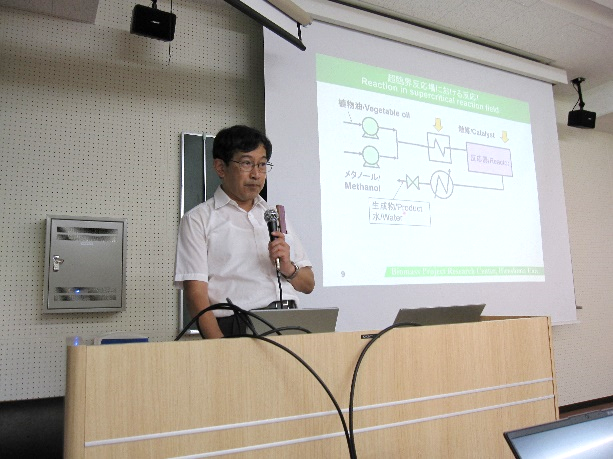
Lecture: Ken FURUTA
M1, Graduate School of Innovation and Practice for Smart Society, Hiroshima University
“Effect of preheater length on catalytic biodiesel production using supercritical methanol”
Our previous research shows that zinc oxide supported on carbon nanotubes (ZnO/CNT) catalyst can be used to improve biodiesel yields in supercritical methanol biodiesel synthesis. However, catalyst was flowed out from the reactor, and it is caused yield loss. In this study, we considered that methanol and oil can not form a single phase as the cause of catalyst leakage, and discussed the effects of changing the preheater length on catalyst leakage and yield.
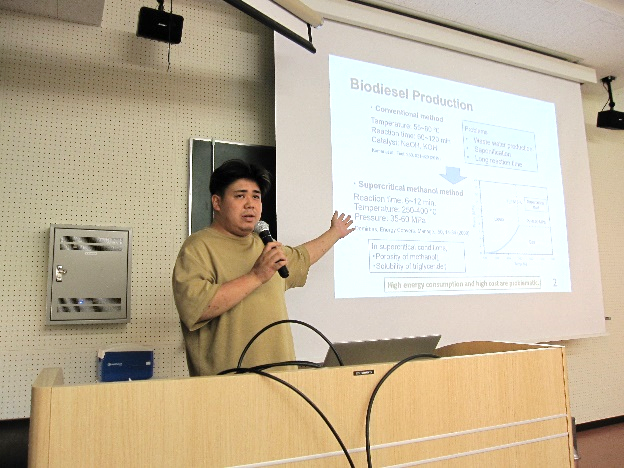
Lecture: Ken FURUTA
M1, Graduate School of Innovation and Practice for Smart Society, Hiroshima University
“Effect of supported catalyst amount on biodiesel production using supercritical methanol”
Our previous research shows that zinc oxide supported on carbon nanotubes (ZnO/CNT) catalyst can be used to improve biodiesel yields in supercritical methanol biodiesel synthesis. However, the effect of zinc loading amount on the carbon nanotube on the product has not been clarified. In this study, the effect of zinc loading amount on biodiesel yield was clarified and by checking the yield of biodiesel at different catalyst loading amount.
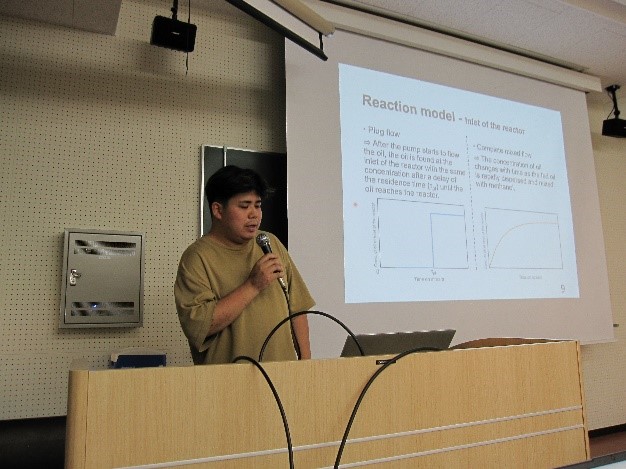
Lecture: Kosuke YAMADA
M1, Graduate School of Advanced Science and Engineering, Hiroshima University
“Catalytic reaction of glycolic acid in supercritical water using activated carbon”
Previous studies have shown that adding activated carbon as a catalyst in the supercritical water gasification of glucose decreases the yields of glycolaldehyde and glycolic acid. This study confirmed the catalytic reaction of activated carbon in the supercritical water gasification of glycolic acid using glycolic acid as the feedstock. The experimental results showed that using activated carbon in the supercritical water gasification of glycolic acid did not have the expected effect, although some gasification was enhanced. This may be because the activated carbon did not accelerate the decomposition of glycolic acid, but rather inhibited its formation reaction.
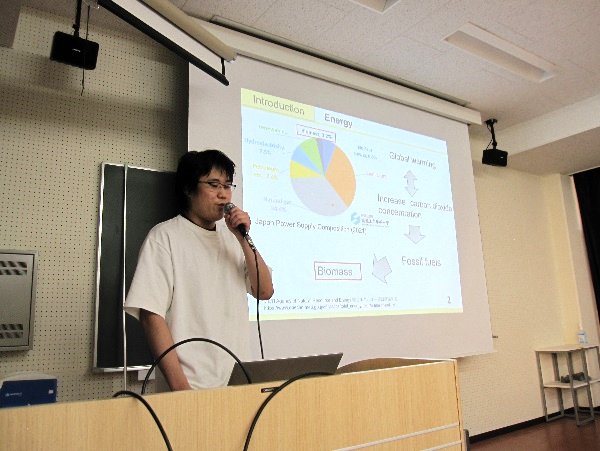
Lecture: Koichi TAKEMOTO
M1, Graduate School of Advanced Science and Engineering, Hiroshima University
“Hydrothermal carbonization of palm oil mill waste”
In Malaysia and Indonesia, the production of palm oil is thriving and has become one of the major industries. In this process, EFB and POME, which are waste products generated in large quantities, have the potential to be used as a rich source of organic waste. In this study, we conducted hydrothermal carbonization using a batch reactor at 220-250°C for 2-6 h to confirm the effects of temperature and reaction time on product yield and the elemental composition of solid products.
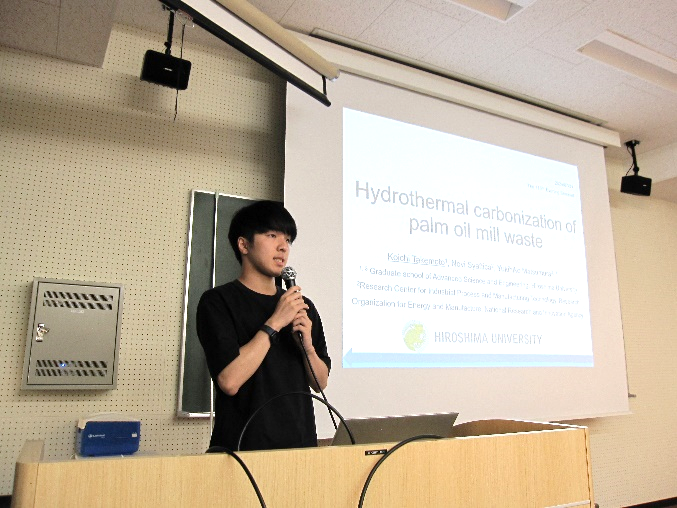
Chair: Yukihiko MATSUMURA
Professor, Graduate School of Advanced Science and Engineering, Hiroshima University

 Home
Home














